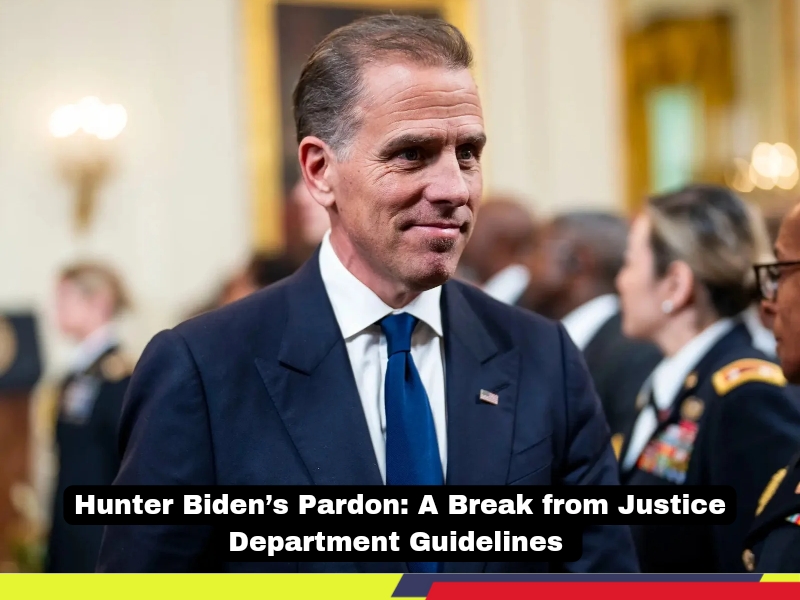Hunter Biden’s recent pardon from his father, President Joe Biden, has sparked a heated debate about the fairness and consistency of the clemency process. The pardon comes despite the fact that Hunter Biden has not yet been sentenced for his criminal charges, which, according to the Justice Department’s Office of the Pardon Attorney, would typically disqualify someone from receiving such a recommendation.
The Justice Department’s Pardon Process
The Office of the Pardon Attorney is responsible for reviewing pardon requests and making recommendations to the president. Under its guidelines, the office primarily recommends pardons for individuals who have already served their sentences. This approach aims to ensure that those seeking clemency have demonstrated good behavior and completed the legal consequences of their actions.
However, Hunter Biden’s situation deviates from these standard procedures. As of now, he has neither been sentenced nor served time for his crimes, which raises questions about the timing and rationale of his pardon.
A President’s Authority to Grant Clemency
While the Justice Department’s guidelines are influential, the president has the ultimate authority to grant clemency to anyone they choose, regardless of the recommendations made by the Office of the Pardon Attorney. This power has been used by presidents from both parties, though it is more common for presidents to follow the office’s advice.
Former President Donald Trump was known for frequently granting clemency to individuals who had not received recommendations from the pardon office. This included people who had yet to be sentenced or those whose cases had been rejected by the office. According to Margaret Love, a former U.S. pardon attorney, such actions were almost unheard of before Trump’s presidency.
Criticism and Advocacy for Broader Clemency
While Hunter Biden’s pardon has garnered attention, it has also highlighted the ongoing debate over clemency and criminal justice reform. Prisoners’ rights groups have long pushed for broader use of presidential clemency, arguing that the system should prioritize those serving disproportionately long sentences, especially for non-violent offenses.
Zoë Towns, executive director of the advocacy group FWD.us, called on the Biden administration to focus its clemency efforts on reducing long prison sentences, noting that there are thousands of individuals whose cases have been thoroughly vetted and deserve consideration.
During his presidency, Joe Biden has granted 157 clemency actions—25 pardons and 132 commutations—though this number lags behind the 238 clemency grants made by Donald Trump in his first term. The latest figures do not appear to include Hunter Biden’s pardon, making it unclear how this will impact Biden’s legacy in terms of criminal justice reform.
Looking Ahead
Hunter Biden’s pardon has stirred both praise and criticism. For some, it signals a father’s mercy towards his son, while for others, it raises questions about the fairness of the clemency process. As the debate continues, it will likely serve as a focal point in discussions about clemency, fairness, and the reform of the justice system, especially as President Biden’s term nears its end.
The pardon also serves as a reminder of the broader push for justice reform, as groups call for more attention to be given to individuals serving long sentences, rather than high-profile or politically charged cases. Whether or not Hunter Biden’s case will lead to broader changes in the clemency process remains to be seen.




